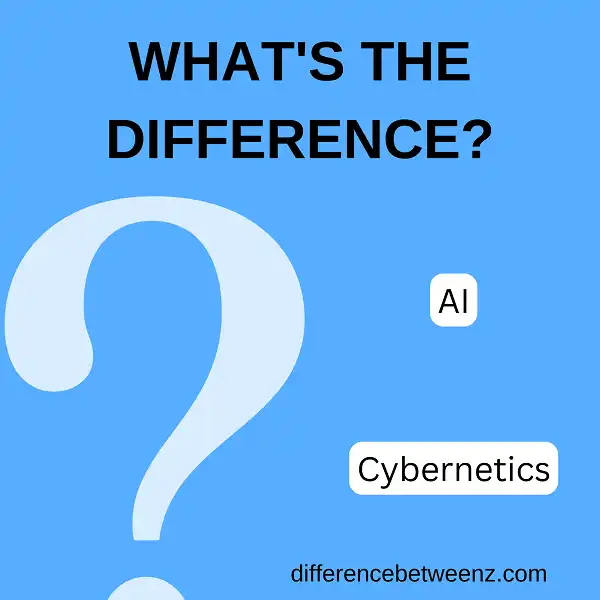In a world where technology is constantly evolving, it can be difficult to keep up with the latest trends. In particular, there are two terms that are often used interchangeably but have very different meanings: artificial intelligence (AI) and cybernetics. Though they share some similarities, AI and cybernetics are actually quite different.
What is AI?
AI stands for artificial intelligence. AI is the result of applying cognitive science techniques to artificially create something that performs tasks that only humans can perform, like reasoning, natural communication, and problem-solving. There are two types of AI: general AI (AGI) and narrow AI (ANI). AGI is where machines have human-like intelligence, while ANI is where machines are good at one specific task. The history of AI started with a dream to build intelligent machines, dating back to the ancient
Greeks. In the 1950s, a term was coined for this field of study: artificial intelligence. A Dartmouth summer conference in 1956 brought the field of AI into existence. Since then, there has been an exponential growth in AI research and development. Currently, some applications of AI include: self-driving cars, search engines, fraud detection, and medical diagnosis. However, there are many ethical concerns surrounding AI as well, such as job loss due to automation and the potential for misuse by governments or large companies.
What is Cybernetics?
Cybernetics is the interdisciplinary study of the structure of regulatory systems. Cybernetics is concerned with various kinds of feedback, compliance, and control mechanisms in living organisms, machines, and organizations. Broadly speaking, cybernetics studies how information processing and control systems work.
Cyberneticians investigate topics such as how goals are represented and achieved, how systems process information and make decisions, how they learn and adapt, and how they cope with uncertainty. The field of cybernetics has had a profound impact on a wide range of disciplines, including engineering, biology, psychology, economics, and sociology. The term “cybernetics” was coined in 1948 by mathematician Norbert Wiener.
Difference between AI and Cybernetics
AI (artificial intelligence) and Cybernetics are both scientific disciplines concerned with the study of intelligent systems. AI is focused on creating machines that can think and act like humans, while cybernetics is concerned with studying the way biological systems process information. Both AI and cybernetics have contributed to our understanding of how human intelligence works, and both fields have important applications in many different areas.
However, there are also some important differences between them. For instance, AI research is primarily based on mathematical and computational models, while cybernetics research often draws on insights from psychology and physiology. Additionally, AI systems are typically designed to operate independently, while most cybernetic systems are integrated into existing biological systems. Despite these differences, AI and cybernetics share many common goals and methods, and the two disciplines often inform and inspire each other.
Conclusion
Cybernetics is the study of communication and control in animals and machines. Cyberneticians seek to understand how systems interact with their environment and each other, as well as how they can be controlled or modified. In general, cybernetics focuses on system stability and efficiency.
AI, or artificial intelligence, is a field of computer science that deals with the creation of intelligent agents, which are systems that can reason, learn, and act autonomously. AI has been around since the 1950s but has really taken off in recent years due to advances in technology. Cybernetics is more concerned with stable systems while AI strives for human-like intelligence.


